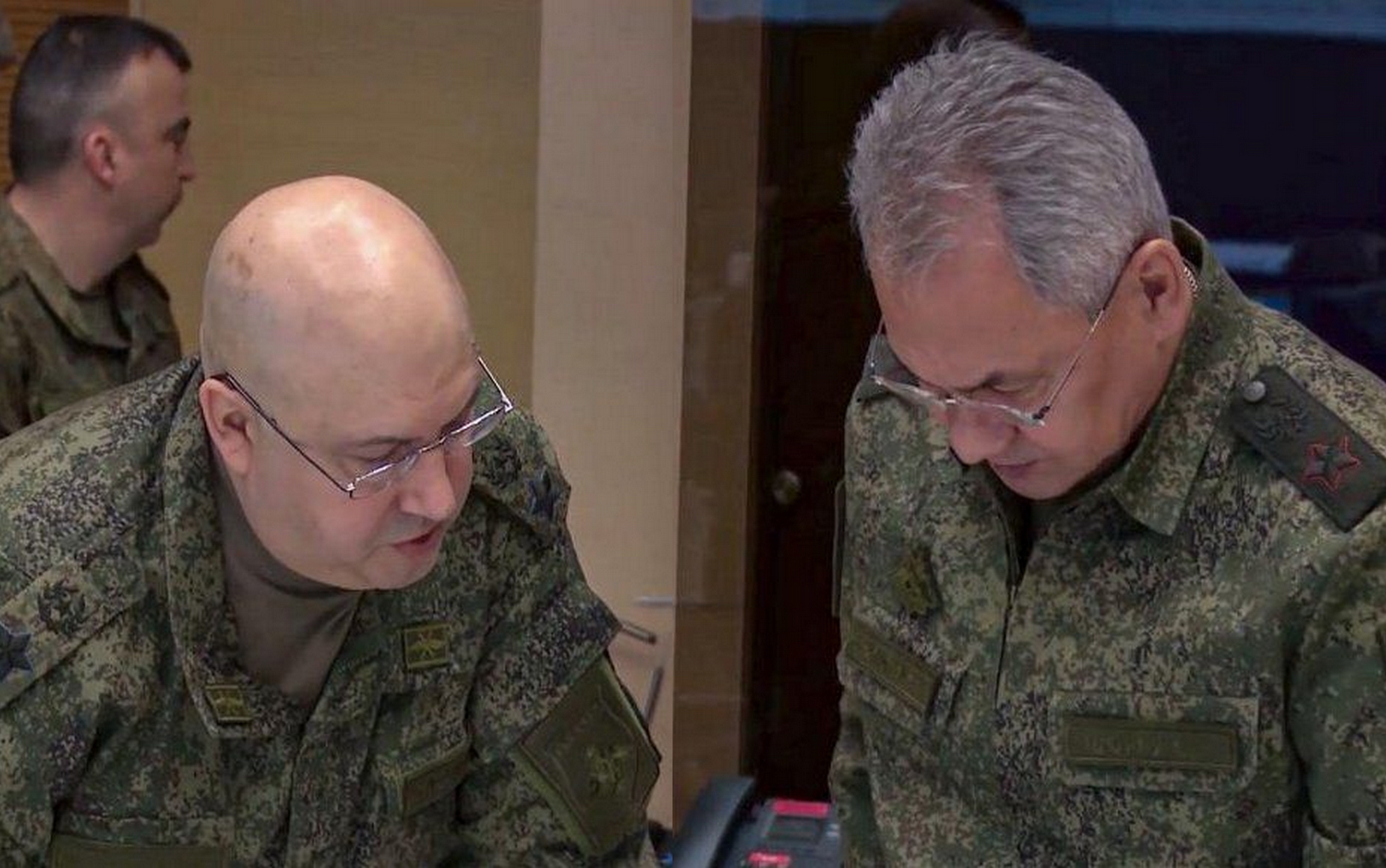Russia orders the withdrawal of its forces from the Ukrainian city of Kherson to organize the defense along the dividing line of the Dnieper River

It seems like Russia is on its way to suffer another major setback in Ukraine.
The Russian defense ministry announced on Wednesday, the decision to withdraw its forces from the Kherson in the south of the country, which is under a Ukrainian counter-attack and bears the same name as its capital.
This withdrawal, which was decided after the Russian occupation forces evacuated about 115 thousand residents of the Kherson region, is a resounding defeat for Moscow, which was forced to withdraw from the Kharkiv region (northeast) in September.
It also comes as Vladimir Putin on September 21 ordered the mobilization of some 300,000 reservists to bolster the ranks of the Russian forces, as thousands of them were deployed to combat zones.
Russian Defense Minister Sergei Shoigu, during a televised meeting with the commander of Russian operations in Ukraine, General Sergei Sorovikin, ordered the withdrawal of Russian forces from the right bank of the Dnipro River in the Kherson region.
“Implement the withdrawal of the soldiers,” Shoigu said on television, after a suggestion in this direction by Sorovikin, who admitted that it wasn’t an easy decision.
This withdrawal constitutes a new setback for the Kremlin, as Kherson was the first territory captured by Russian forces after they invaded the city in the early days of the Russian invasion of Ukraine.
It was part of the regions of Ukraine that Russian President Vladimir Putin announced their annexation at the end of September.
For its part, the Ukrainian presidency indicated on Wednesday evening that it doesn’t see at this stage any indication of the withdrawal of Russian forces from Kherson.
Shoigu ordered the withdrawal of Russian forces from the right bank of the Dnipro River (west), where the city of Kherson is located, to establish a defense line on the left bank (east) of the river, which constitutes a natural barrier.
The Kremlin tried to postpone this humiliating withdrawal as long as possible, but the situation became more difficult for Moscow’s forces in the face of the Ukrainian army, which is equipped with modern weapons provided by the Western allies.
Kherson is considered strategic as it borders Ukraine’s Crimea peninsula, which Moscow annexed in 2014.
General Sorovikin accepted the withdrawal proposal, justified it by his desire to protect the lives of Russian soldiers and accused the Ukrainian forces of bombing civilians.
“We think first of all about preserving the life of every Russian soldier,” he said, stressing that the Russian army “successfully resists the offensive attempts” launched by Ukrainian forces.
Since the Kremlin announced at the end of September the annexation of four Ukrainian regions, including the Kherson region, Moscow has come to consider these territories as part of the national territory.
Putin warned that Russia will defend “by all means” what it considers its territory, and senior Russian officials have openly hinted at the possibility of resorting to nuclear weapons.
General Sorovikin also announced on Wednesday that the occupation authorities had, in recent weeks, evacuated 115,000 people from the right bank to the left bank of the Dnipro River.
Ukraine has condemned the deportations of the population, describing them as deportations.
In another indication of the chaotic situation in Kherson, a senior official in the Russian local administration, Kirill Strimosov, was killed on Wednesday, according to local authorities in a traffic accident.
Strimosov was a staunch supporter of Moscow’s annexation of the Kherson region and his death comes after many figures of the Russian violently perished across Ukraine.
Before announcing this withdrawal, the Russian forces announced that they were preparing to defend strongly on the left bank of the Dnipro River.
With the Russian offensive soon entering its ninth month, the West continues to reaffirm its support for Kiev militarily, logistically, and financially.
The European Commission on Wednesday proposed to the 27 member states to give Ukraine 18 billion euros in aid for 2023 in the form of loans.
Ukrainian President Volodymyr Zelensky praised the European Union’s solidarity as Kyiv remains concerned about waning US support after the still-undecided midterm elections, even as the White House says its support for Ukraine will be unwavering.
NATO Secretary General Jens Stoltenberg sought to reassure Kyiv as well.
“It is very clear that there is strong bipartisan support in the United States to continue providing support to Ukraine, and that hasn’t changed,” Stoltenberg told the press after meeting British Prime Minister Rishi Sunak in London.
In this regard, the Kremlin considered that relations between Moscow and Washington will remain bad regardless of the outcome of the elections that took place on Tuesday.





